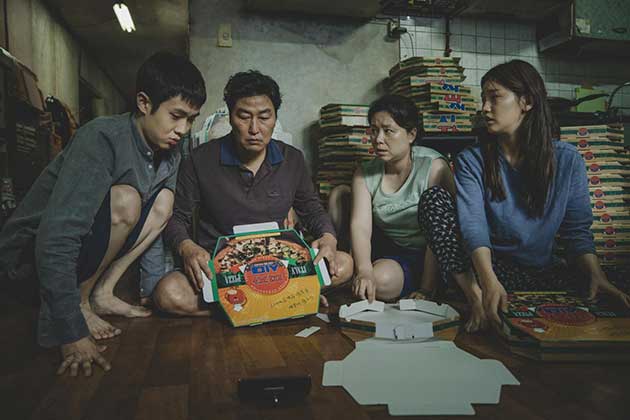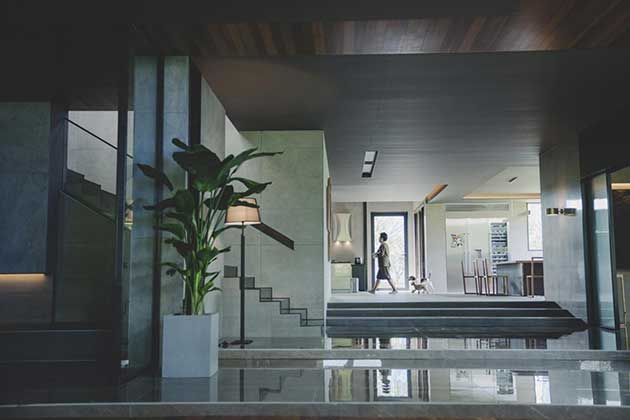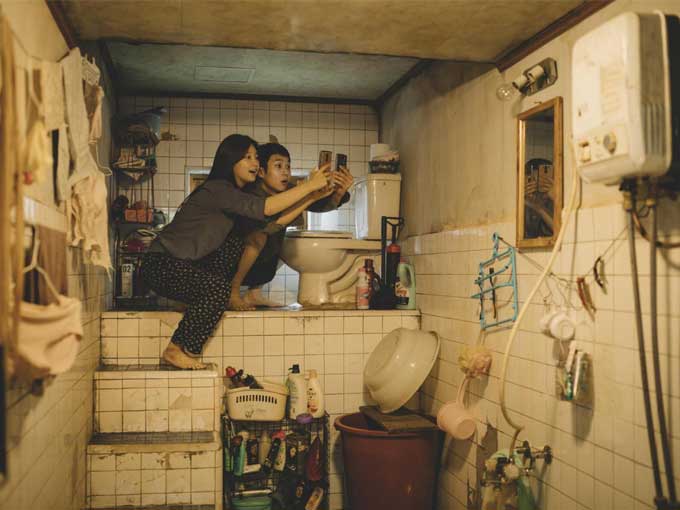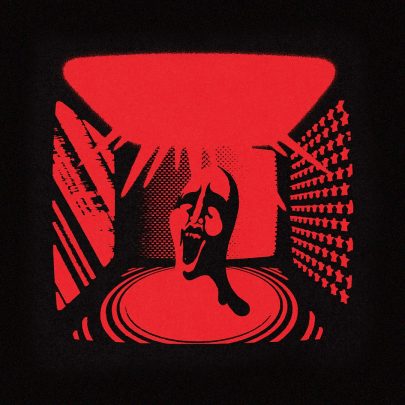Jun 13, 2019 Film & TV
From the director of Snowpiercer, Okja and The Host, Parasite has the same unhinged, surreal quality. The jokes will lull you into a false sense of security then become the only respite to a movie that is in all other respects, a walk along a knife’s edge. You’ll want to look away, but you won’t be able to.
Bong Joon-ho’s Palme D’Or winning Parasite tells the story of an unemployed Korean family of four folding pizza boxes and stealing wifi, barely scraping by in their half-basement flat. Vouched for by a childhood friend, the son gets a job working as a high school English tutor to the daughter of an rich family. The girl’s own family of four live in a sprawling home, designed by a famous architect. Seizing an opportunity, the young tutor gets his document-forger sister hired as an art therapist for the younger child. Joon-ho has written a letter to reviewers pleading they’ll not reveal any more beyond that point. Suffice to say that the movie, for which he also co-wrote the screenplay, walks you along a knife’s edge for the rest of the run time.

Parasite is also unexpectedly funny. However as the movie goes on, the jokes take on an uneasy poignancy and you realise that despite the family-comedy qualities, Parasite is really a frantic thriller.
I hesitate to give anything away, but if you’ve seen Snowpiercer, Okja, The Host or any of Joon-ho’s other movies, you’ll be familiar with the uncanny, hysterical, surreal and insane quality of Parasite: classical music as a fine-tuned and expertly planned heist is carried out, a family sleeping under a coffee table; a girl smoking a cigarette as neck-high water rises; blood, spattered onto sourdough sandwiches. Parasite reaches a crescendo and stays there. Giving you heart palpitations.

While Parasite is bizarre and horrifying, it’s visually beautiful, with careful, considered natural lighting and a high saturation glow casting the dwellings of rich and poor into stark relief. The cramped, darkly-lit spaces of the half-below ground home of the impoverished family contrast with the vast expanses of the architect-designed palace with a topiary garden, cellar, wall to ceiling windows flooding the stained-wooden floors suffused with a glow of natural light like a divine blessing.
Joon-ho keeps that intensity and awareness of what is at stake up for the whole movie. Even in scenes where you don’t expect to see it, in every detail. So by the end the jokes feel like a welcome and necessary respite from the pressure that mercifully allow your head not to pop. Even though the movie is confronting and has an uncomfortable twinged-nerve quality, you’ll be glued. That’s the genius of it.
Follow Metro on Twitter, Facebook, Instagram and sign up to our weekly email






